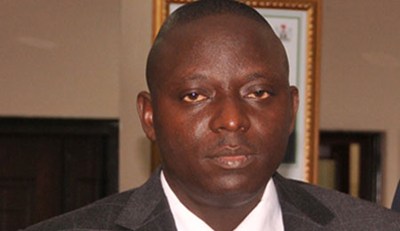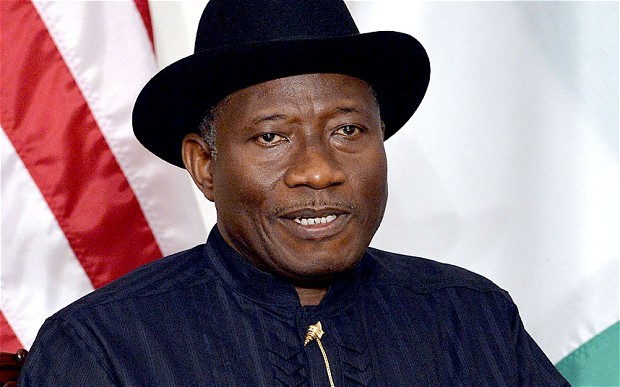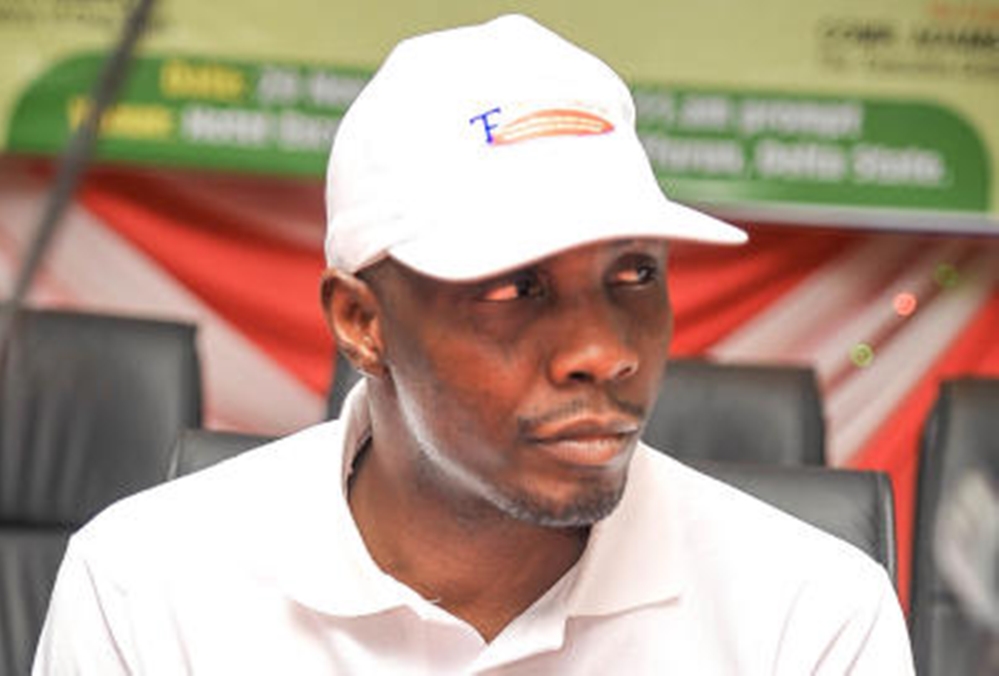By Charles Offokaja
On July 16, the controversial reign of Ziakade Patrick Akpobolokemi as Director General of the Nigerian Maritime Administration and Safety Agency (NIMASA) was abruptly terminated via a terse statement from the Special Adviser on Media and Publicity to President Muhammadu Buhari, Femi Adesina, with an immediacy that was not unlike that of a gunshot punctuating a silent night.
Akpobolokemi was directed to immediately hand over the management of NIMASA and all government property in his possession to the most senior officer in the agency; and there was wild jubilation at the Maritime House in Apapa by people opposed to his 55-month stint as NIMASA supremo.
Until his disengagement last week, Akpobolokemi was one of the most powerful, controversial and divisive public officials Nigeria has seen in recent times – loved by some, hated by many. While he undoubtedly touched lives within the maritime sector, many have been calling for his sack for years, and to them he represented everything that could go wrong in the sector. Whereas some saw him as an exemplary leader whose developmental strides will remain an inspiration that not only impacts the sector but even transcends it, many others have come to see him as one who was unapologetically biased toward his Ijaw ethnic group and sought to turn NIMASA into a second Niger Delta Ministry in defiance of the Federal Character principle. While some see a man who had strong convictions on affirmative action and stood by them, others see an overbearing, arrogant man who didn’t care to carry people outside his ethnic stock along. This report x-rays the series of controversies that was Akpobolokemi’s tenure as NIMASA DG, and unearths different sides to the issues surrounding the man who bestrode Nigeria’s apex maritime regulatory agency like an imperial potentate for 55 dramatic months.
Brouhaha over qualifications to be DG
The tenure of Akpobolokemi was doomed to be controversial right from the start. First of all, it did not follow the laid down process for the appointment of a Director General for NIMASA. Sections 6 & 7 of the Act establishing the agency go thus; “The President with the recommendation of the Minister of Transport is empowered to appoint members of the Board of NIMASA for which the Director General is a member.”
The Act further makes it clear that such members should possess relevant experience and capacity applicable to maritime administration, recognized expert knowledge, qualification and experience in one or more of the following fields; maritime safety, maritime security, maritime pollution, nautical sciences and hydrographic and maritime engineering. Others include finance, marine law, transport logistics, administration and marine labour. As at the time of his appointment, Apkobolokemi a former lecturer, could not lay any claim to any significant experience and capacity applicable to maritime administration, or to any recognized expert knowledge, qualification and experience in the sector. And because due process was not seen to be followed in appointing him, there arose a strong perception that the only reason that he was thought qualified for the post of NIMASA DG was because he came from a particular tribe. So began the bumpy NIMASA career of Akpobolokemi.
Ballooning CVFF and emaciated shipping companies
The Cabotage Act of 2003 was one policy that would have transformed Nigeria’s waterways into a multibillion naira a year goldmine, providing employment and enhancing trade; but it needed the stimulus of a Cabotage Vessel Financing Fund to enable it work. So one was formed. The funds were to be disbursed frequently to finance the purchase of vessels by Nigerian entities, but before the coming of Akobolokemi they weren’t. With his entrance into NIMASA hopes rose that the multibillion naira fund would be disbursed, but by the twilight of his stay, nothing had happened in that regard. Meanwhile most of the shipping companies Akpobolokemi met in his inception at NIMASA were groaning and in dire need of funds for vessels, if only they could get them. But the idle CVFF which was created to help them kept growing fat, while they grew leaner and leaner. To be fair to Akpobolokemi, NIMASA does not have the final say on CVFF disbursement. The Federal Ministry of Transport (FMOT) does. But many industry analysts say he cannot be exculpated from blame over the dreadful situation as he could have used his powerful voice as NIMASA DG to put significant pressure on the FMOT to do the needful.
Worrisome though were allegations that part of the CVFF had been illegally diverted under the erstwhile DG to other purposes.
Payment of 50 percent of extra revenue generated by NIMASA $326 million to Global West
Akpobolokemi also landed in hot water over NIMASA’s decision to pay Global West Specialist Vessels Limited (a maritime company reportedly owned by his kinsman Government Ekpemupolo, also known as Tompolo) the sum of $326 million as consultancy fee, stating that the figure represented 50 percent of NIMASA’s extra revenue, which by contract agreement was payable to Global West as consultancy fee. There were loud howls in sections of the industry as many though the figure was on the very high side
“Has Nigeria gotten $326 million worth of services from Global West”, one operator asked. When it seemed as if Akpobolokemi would not survive the controversy, like a cat with nine lives he did, postponing the day of reckoning.
Security maintenance of maritime waterways handed over to Global West
Another hot controversy was when Tompolo’s Global West was given a contract to maintain security in Nigeria’s waterways by NIMASA in a deal which was given anticipatory approval before it was even approved by the Nigerian Government. Opponents of the deal said the contract amounted to handing over a statutory duty of the Nigerian Navy to a private individual. The plot thickened when Tompolo bought seven battleships from Norway to help with his company’s patrol of Nigeria’s waterways, with NIMASA’s backing. The perception in certain quarters was that Akpobolokemi was aiding his kinsman to build a private Navy that could potentially be detrimental to Nigeria’s territorial integrity.
According to pioneer Chairman of the Board of NIMASA, Alhaji Tijjani Ramalan who vehemently disagreed with the deal, “Over 400, 000 barrels of crude oil are being stolen daily from our shores under President Jonathan yet we had a government that has the Navy, the Army and the Air Force, and the government of Jonathan decides to hand over the security of our maritime waters to Tompolo at a very exorbitant amount of money.
“And these same people that are given the job of our maritime security are the ones that are collaborating with the international shipping companies to steal our oil.”
But when asked a question on the issue by Daily Sun, Akpobolokemi had this to say; “When you say private army, it creates many wrong insinuations. Remember also that, before this concessioning happened, the military was involved, the Minister of Defence was involved. In fact we were asked to go and streamline everything and come back which we did. The Navy also took part, though some people would want to cast aspersion on us or would want to come and break the ranks or cause acrimony between government agencies, which is not helpful. Except you have something to hide, there is no reason anybody should be worried about what NIMASA is doing.
“In the first place, I did not bring the NIMASA Act from the National Assembly; since it predated my tenure. Before I assumed office, I met the NIMASA Act. What did the Act say? You can perform your functions with a person, group of persons, institutions, and government in furtherance of your functions. The Act specifically also said that you can have an interface with the Navy and other relevant agencies; so what have we done wrong?”
Perceived Ijaw colouration of NSDP beneficiaries
Dr. Ade Dosunmu, during his time as DG of NIMASA, introduced the Nigerian Seafarers Development Programme (NSDP), a programme meant to address the country’s dearth of seafaring personnel. Initially the scheme was to be a collaboration between NIMASA and state governments on a sponsorship ratio of 40:60. The second window comprised of private individuals and institutions, and ministries, including the Ministry of Niger Delta. When many states did not show interest in funding the programme, NIMASA decided to bear the entire cost itself. But Akpobolokemi’s critics say he used the lack of interest by states as a pretext to determine the beneficiaries of the NSDP, and that he skewed the process to ensure that that the greatest beneficiaries were people of his Ijaw ethnic stock. They point to an alleged situation where four NSDP examination centres were cited in Ijaw areas while only one was cited in a non Ijaw area as an example of unfairness they were talking about.
But supporters of the ex NIMASA boss say he used merit, professionalism and presence of a critical mass of intending seafarers as yardsticks in the NSDP situation.
President of the Shipowners Association of Nigeria (SOAN), Engr. Greg Ogbeifun told Ships & Ports Daily, “What I can say is that it has not come as a surprise to a lot of people. The system has to move on and the important thing is who succeeds him and our intention as stakeholders is that a technocrat who is a professional on the field should be appointed to take over from him.
“If am to comment on Akpobolokemi’s tenure, I think he did well considering his background because whether we like it or not, he was able to bring professionalism to NIMASA for the fact that he allowed mariners to be brought into the key position and those who came in are core professionals who are adding value.”
Founding of Nigeria’s first maritime university
One thing that cannot be denied by anyone was Akpobolokemi’s passion for capacity building in the maritime sector, though skewed in favour of a particular section of the country.
Perhaps that is what the former administration saw in him that made them move mountains to appoint him as DG of NIMASA, even when many said he wasn’t qualified. This passion, this zest is elucidated most clearly by his midwifing the formation of the Nigeria Maritime University, Okerenkoko, Delta State. According to him, the dearth of adequate human capacity in the maritime sector informed NIMASA’s decision to champion the establishment of the university, which is also Nigeria’s first specialised university.
Akpobolokemi’s NIMASA hatched the idea for the university and lobbied the National Assembly to endorse it. He also made sure it got maximal support from the executive arm of government.
According to him, the university was established to further NIMASA’s passion to build local capacity in the maritime sector as well as to export manpower. It was conceived as a capacity development project that would quicken the pace for the development of human capacity that would take over the Cabotage trade in the nearest future.
Nigeria Maritime University, if it follows Akpobolokemi’s stated vision for it, is indeed a long term solution to the scarcity of qualified seafarers that Nigeria currently faces, which saw NIMASA sponsor over 2,500 young Nigerians (albeit controversially) for training in Nautical Science, Naval Architecture and Marine Engineering at degree level in reputable institutions in Egypt, India, Philippines, Romania and the United Kingdom under the Nigerian Seafarers Development Programme (NSDP).
One legacy that may come out of Akpobolokemi’s establishment of NMA is the ignition of a revolution in the creation of specialised universities in the country. No less a figure than the Governor of Delta State feels it is a panacea to the high unemployment and underemployment rate in Nigeria. When receiving Akpobolokemi recently, he is reported to have said; “Nigeria should move beyond conventional universities and seek to establish specialized universities which will give the right tools and practical learning that will make graduates employers of labour, rather than job seekers. The unemployment in Nigeria today is largely due to our focus on conventional education.” The governor urged other government agencies to toe the line of NIMASA and think outside the box in the business of finding solutions to the problems of this country.
Akobolokemi also oversaw the establishment of Institutes of Maritime Studies (IMS) in 6 Nigerian universities namely; University of Nigeria Nsukka; University of Lagos; Niger Delta University Amasoma, Bayelsa State; Ibrahim Badamasi Babangida University, Lapai, Niger State; Anambra State University, Uli; and the Federal University Kashere, Gombe State.
Critics of Akpobolokemi’s capacity building programme however fault his non-challant disposition towards Nigeria’s foremost maritime training institution, the Maritime Academy of Nigeria (MAN) Oron.
Some stakeholders have also queried the amount of money spent on the Nigeria Maritime University and the NSDP.
Who’s next?
Baba Haruna Jauro, who was appointed Executive Director Finance and Administration in July 2012 has been appointed as Acting Director General of NIMASA but industry pundits believe that the Buhari administration should appoint a maritime technocrat as substantive Director General.
They say this would go a long way to reduce the controversies that have surrounded that post in the past few years. Whoever is appointed would be expected to slacken the thirst of the maritime industry for CVFF by pushing effectively for its disbursement as a way of making Cabotage work for Nigeria. They would also be expected to turn around the fortunes of indigenous ship owners.
Would it be a man or a woman? Only the President of Nigeria knows the answer in his mind. We can only watch with respectful impatience.


